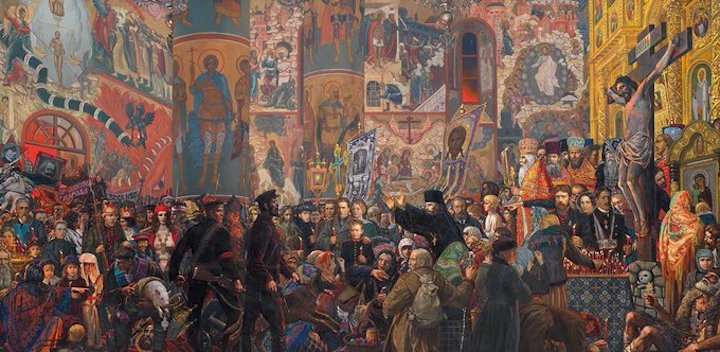Our nation has long given up teaching morality. Today the word “morals” is uttered sparingly, having been replaced with “values,” a word more subjective and pleasant-sounding than its predecessor, which evokes objective standards and prescribed behavior. The slip to “values” happened almost effortlessly after secular forces evicted God from our school systems and the public square.
Morals are best understood when an established order provides a purpose for them, and belief in God who created an ordered universe once supplied that purpose. Now, with leading secularists denying any purpose to the world or to human life, it is no wonder that human behavior has taken some frightening turns.
Secular society is now caught in a snare it has made for itself. On the one hand, it fiercely advocates for an individual’s right, in the infamous words of Justice Anthony Kennedy, “to define one’s own concept of existence, of meaning, of the universe, and of the mystery of human life.” Should a person want to kill a child in utero, reinvent marriage, or refashion his sexuality, no law or institution ought to prevent that.
On the other hand, there has to be a code that regulates behavior to some degree, lest anarchy ensue. So in the place of morals that – coupled with its other forgotten complement: virtue – once shaped proper human behavior from within, secularists impose external laws to regulate our behavior from without.
These laws are of two types: laws of consent and laws of control.
Today laws of consent govern sexual relations, and are increasingly necessary now that marriage has been deposed as sexuality’s proper home. With consent as the lone standard, sexual acts cannot be right or wrong; all that matters is that the parties involved agree to the deed. Subjective decisions by individuals, rather than objective standards upheld by a created order, now govern human sexuality. That explains why all kinds of sexual activity are now permitted. Only when one person does not consent to such activity can there be a crime in our secular world.
Laws of control do not limit a person but a situation, such as the ability to own a firearm or to raise the rent. Of course, laws of this kind have always existed, and they are not wrong in themselves. But today’s version has become imperative for secularists who, by their own principles, cannot tell a person how to live morally.
Hence their only recourse is to control potential situations, limiting the opportunity a person has to harm another. By secularist logic, we cannot teach a man, “Thou shall not kill.” Instead, we have to say, “Thou shall not own a gun.” That control laws are an imposition of one’s will on another is silently overlooked.

In our secular world, there is just one line of defense between human beings and egregious actions: an external law that commands a person to obey or suffer the consequences. Should people adhere to the standards of consent and control, we will all get along. Or so it is hoped.
In the Catholic tradition, by contrast, law and its penal consequences are the last resort for restraining immoral behavior. In this tradition, there are many actions that are immoral in themselves, aside from violating consent. Certainly, the Christian moral code, like civil law, contains numerous negative norms: “thou shall not.” Yet these norms are part of a broader vision for the meaning of human life, and, consequently, how human beings ought, and ought not, to behave.
Rather than simply coerce the will as civil law does, the Christian moral code makes an appeal to the intellect, persuading us to accept as true a vision for how we should live. Obeying this code also carries a positive reward: eternal life with God in heaven. Civil law remains to constrain those who reject this code.
Christian morality is further strengthened when believers strive to acquire virtues, habits of performing good actions. We become virtuous from repeatedly performing acts of virtue, ingraining them into our very being. Truly virtuous persons no longer require negative prohibitions because they are always motivated to do the right thing in every situation. Virtuous persons rise to a higher level still when they are in love with Jesus Christ. Then, writes St. Paul, “If you are led by the Spirit you are not under the law. . . .[T]he fruit of the Spirit is love, joy, peace, patience, kindness, goodness, faithfulness, gentleness, self-control.” (Gal 5:18, 22-23)
Our secular world has discarded virtue alongside morals, since virtue also implies a right way to live. In its place, we now have self-esteem campaigns and vapid exhortations to kindness. This advocacy is well-intentioned, but it is not effective because it lacks a reasoned foundation for why anyone should so act. The appeal is not to the intellect, not even to the will, but to the emotions, which is akin to building one’s house on sand.
Teaching morality and virtue does not guarantee that every person will become a saint and never do wrong. It never has. But teaching them does increase the likelihood of individuals choosing to live upright lives because they receive motivation to do so from three sources – virtues, morals, and the law – as opposed to just one. When we reduce our defenses, we become more vulnerable to attack.
We cannot expect civil law to do the work that a reasoned moral order and virtuous character formation once did. The American experiment succeeded because the latter two were present as the country was founded and then expanded, even before rule of law arrived in previously unsettled locales. Secular America’s rejection of morality and virtue may well be the step that ruins our great experiment.
*Image: The Desecration of the Church at Easter by Ilya Glazunov, 1999 [Ilya Glazunov Picture Gallery, Moscow]















